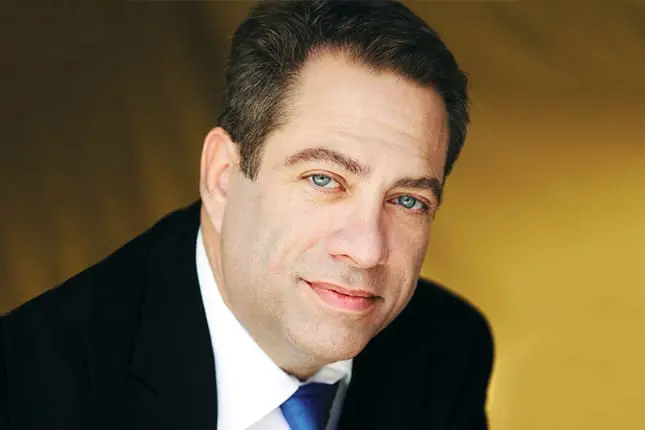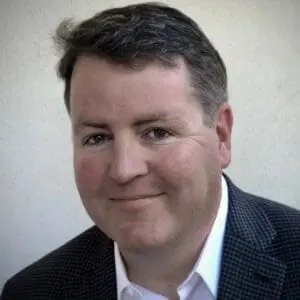What do you say to someone who’s lost a loved one, or is facing the terrifying imponderables of a terminal illness? How do you choose the right words, find the right tone? How do you make your way through the fear of saying the wrong things to offering something that truly feels supportive and helpful?
Not surprisingly, most people shy away from emotionally fraught subjects like death and grieving, but best-selling author David Kessler has spent his life becoming an expert on them. Why? As he reveals in the following interview, one fateful day in his childhood forced him to confront death on many levels, and led him to spend years working in hospice centers and on disaster and trauma teams around the world. Kessler, known for his collaboration with the legendary Elisabeth Kübler-Ross, coauthored two best-selling books with her: On Grief and Grieving and Life Lessons. Over the course of his career, he’s helped thousands of people deal with the end of life and the grieving process. Here, he discusses lessons he’s learned.
—–
RH: How did you become interested in death and dying?
Kessler: You don’t choose to work in this field: it chooses you. In my case, it chose me in a really dramatic way when I was 12. We lived in a very small town, and my mother, who’d been ill with kidney disease, had gone to a big-city hospital for dialysis, which was a brand new treatment back then. My father and I were staying in a hotel directly across from the hospital, and I woke up one morning to discover that a sniper had taken over the hotel and started shooting people. Some people were killed in front of us, including several police officers, before they finally shot the sniper. After a long, terrifying delay, when my father eventually got me over to the hospital to see my mother, the nurse enforced a “you must be 14 years old to visit” rule. So I didn’t get to see my mother, who died the next day. Later, when I flew back home, it was my first time on a plane, and as a way of doing something special for a kid whose mother had died that day, they let me ride in the cockpit. They tried to give me some fun experience, I assume. It was a life-changing day, full of mixed emotions, to say the least.
RH: What a bizarre, traumatic introduction to death and dying!
Kessler: It led me to become a thanatologist, someone dedicate to the field of death and dying and grief and loss. I believed I had to go wherever death was. That’s why I became a specialist reserve police officer and worked with the Red Cross on their mental health team and aviation disaster team. I got my pilot’s license, became a paramedic and a nurse, and even got my masters in bioethics. It was only later that I started to realize how clearly I was a product of that one day when I was 12. By getting my pilot’s license, I learned what to do if a plane was going down. I got a masters in bioethics to learn about the people who decided on my mother’s dialysis. I got my nursing degree, ran a hospital, became a healthcare executive, and even became a cop. In all these choices, I’ve gone back and replayed that day on many levels.
RH: As if you were trying to create better outcomes?
Kessler: Right. And I hope by this point I’ve learned enough to have a gift to give to other people.
RH: How did you and Elisabeth Kübler-Ross get together?
Kessler: I was attending an international death-and-dying conference in Egypt where she was the keynoter. At the last minute, we got notification that she’d had a stroke and wouldn’t be there. After the conference, I wanted to check on Elisabeth, so I called, and we had a nice little chat. At the end, I said I hoped someday our paths would cross again. She asked, “How about Tuesday?” So began our relationship.
RH: She wasn’t one to just let fate be in charge.
Kessler: She was a woman who made things happen! Meeting her was a humbling experience, to say the least. She was still sick, and she was angry about her stroke, which had left her paralyzed on her left side. As I joke, I sometimes say, “I’m Jewish, so anger doesn’t bother me.” Years later, she told me I showed up just as many people were abandoning her because of her anger. At the end of our first meeting, I said, “If there’s anything I can do, if you need someone to talk to, whatever you need, please let me know.” And she said, “I need my air conditioning filters changed the next time you come.”
RH: How practical! But I’m wondering why she was angry.
Kessler: She’d said when it was her time, she wanted to get hit by a Mack truck or have aggressive cancer. She said her worst fear was that she’d die slowly. She had her stroke in 1995 but lived until 2004.
RH: So much of death and dying intersects with religion and theology. Do people who have a belief in God cope better than people who don’t?
Kessler: We all have a personalized belief system shaped by our family, our life experience, whatever our religious upbringing has been. I’d say people do better when they have a sense of meaning in life, and early on, I learned a lesson from an atheist who said sometimes people make the mistake of thinking an atheist doesn’t find meaning in life. “We have meaning,” he said. “We just don’t have God.” People who find any kind of meaning in their life, religious or otherwise, find a comfort in facing death that others usually don’t.
RH: I’ve known a few people who’ve lost loved ones and had others try to console them by saying, “She’s in a better place.” Isn’t leapfrogging the painful parts of the grieving process where many of us get into trouble?
Kessler: The most visited page on my website covers the worst things to say to people in grief. One of them is “she’s in a better place.” Of course, none of those things we say are malicious. No one wakes up and says they’re going to be mean to someone grieving today. But context and timing are everything. If you say to someone at a funeral, “she’s in a better place,” it probably isn’t going to go over well. If in six months, however, the griever seeks out advice from his clergy and is looking for understanding, that statement can often be helpful. It’s all about context and timing.
RH: How can therapists best prepare themselves to work with grieving clients?
Kessler: Kübler-Ross believed that how you approach a loved one’s death shapes how you grieve. Before and after is a continuum. Therapists should be aware of anything we can do to help clients be proactive and involved when a loved one is dying. We have to normalize that experience to let people know there’s no right thing to say. It’s about being present. Our life must be witnessed, our death must be witnessed, and our grief must be witnessed. It’s a primal experience.
RH: Being present is more important than knowing what to do or say?
Kessler: Right. Often, our job is to just help that family member, or even the dying person, step up to the plate. Freud said grieving is a natural process that shouldn’t be tampered with. One hundred years ago, in Freud’s time, we’d all be part of a loved one’s dying in our home. Now illness has moved into hospitals and death into funeral homes, so we don’t know how to show up.
RH: What are the practical issues of death and dying that therapists should address?
Kessler: I know therapists who make a plan when they’re working with someone who’s dying. They ask, “So what’s going to happen when you can no longer come into the office? Will I visit you in the hospital? Will I go to your home?” I think that’s such a powerful thing. I’ve seen therapists do wonderful life reviews with someone at the end of their life as well—whether they’re reviewing their whole life, or reviewing their therapeutic relationship. I love when therapists dive into that fearlessly.
RH: Why do most of us avoid talking about grief?
Kessler: We often think we’re running from grief, but what we’re really running from is the pain of loss. Actually, grief is the gift that’s been given to us to help heal.
RH: That’s a powerful reframe.
Kessler: Grief always works if you allow it. It’s not an illness. I try to help people do what I call “translations.” If you see an angry family member of a deceased loved one in the hospital, don’t call security, translate that feeling into “I’m not seeing someone in anger. I’m really seeing someone in pain. If they’re really yelling, it’s because they’re really in deep pain.” We should help people use the word “sad” instead of “depressed.” If I said to you, “My sister died and I’m so depressed,” you might say, “I know a good psychiatrist who can prescribe something.” But if I said, “My sister died and I’m so sad,” you’d say, “Of course you are! That’s your sister. You should be sad for a while.” So it’s best not to run from that sadness, but invite it to pull up a chair. That sadness is going to be there for a while.
Ryan Howes
Ryan Howes, Ph.D., ABPP is a Pasadena, California-based psychologist, musician, and author of the “Mental Health Journal for Men.” Learn more at ryanhowes.net.













